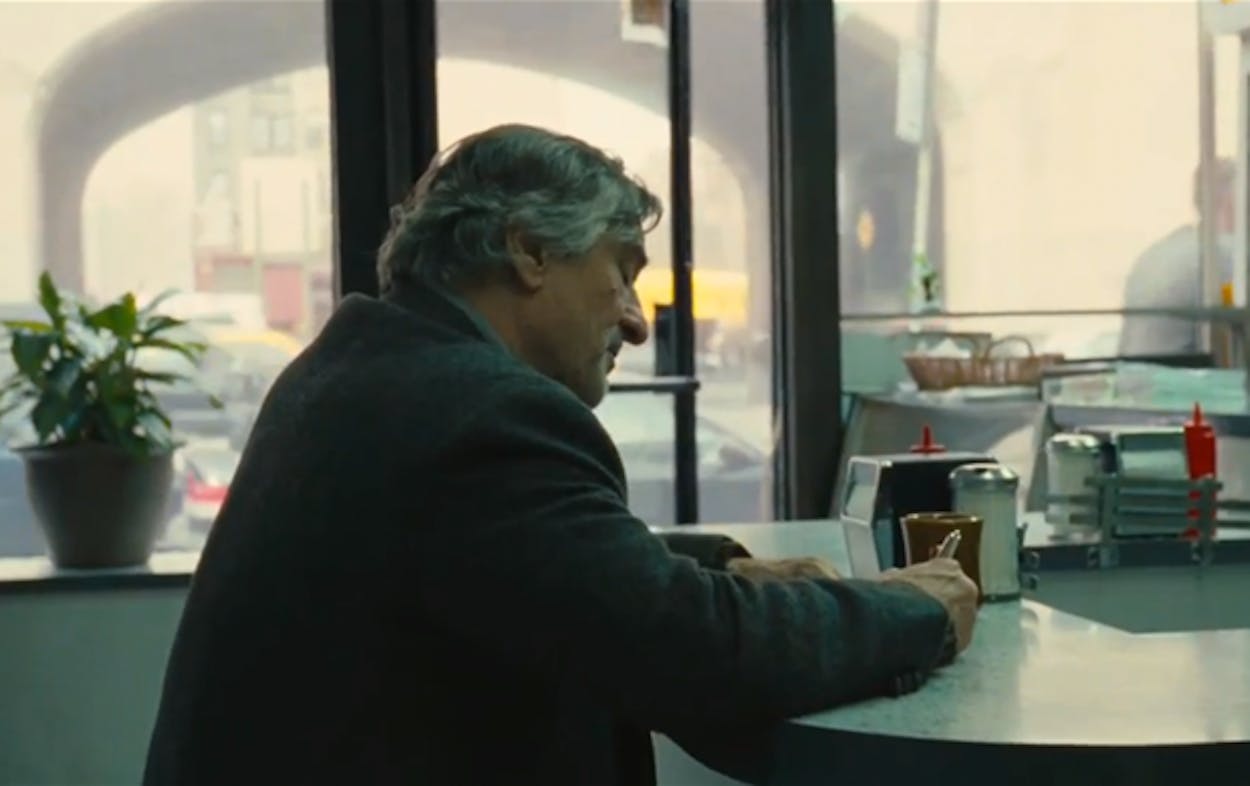Being Flynn, the new movie based on the memoir Another Bullshit Night in Suck City, by Nick Flynn, a part-time writing teacher at the University of Houston, is about grappling with “whether we’re fated to become our parents,” Paul Weitz, the movie’s director, told NPR. “And eventually, how much of their flaws do we have to own in order to move on with our lives?”
In the wake of his mom’s suicide, Flynn, a twenty-something burgeoning writer (Paul Dano), took a job at a homeless shelter in Boston, where he unwittingly ran into his father (Robert De Niro), an alcoholic, ex-convict with delusions of literary grandeur who had abandoned his wife and son. Trying to mend this fractured relationship is the crux of the story.
“Sometimes awkwardly and sometimes gracefully, Being Flynn charts a middle course between the rough honesty of its source and the sentimental triteness of the much worse movie it could have been,” A.O. Scott of the New York Times wrote. “There is honest feeling, genuine humanity and real intelligence in this movie, but there is also a sense of caution, of indecisiveness, that undermines its potential power.”
The movie took eight years to make and involved thirty versions of the script, Ari Karpel of the New York Times reported. Weitz called the process “Kafkaesque,” citing a number of obstacles, including the difficulty in adapting a memoir about writing, addiction, and homelessness that isn’t fraught with cliches; shifts in taste in the movie business; and his own personal demons he had to battle.
The director described an early draft of the script to Karpel as a “Romanian art-house film,” and Flynn called it “weird and dark and poetic.” That is probably why Sony Pictures, the studio that held the initial option, wasn’t feeling it. “It’s a movie about a homeless street alcoholic, what,” [Flynn] used an expletive “do you want? They just drained the darkness out of it until it became kind of unrecognizable.”
That’s when De Niro, who worked with Weitz on Little Fockers, entered the fray and wielded his influence. The movie eventually made its way to Focus Features, where the Romanian art-house version of the script was restored.
De Niro’s passion for the project was evident in his training. According to World Entertainment News Network, he went incognito for a day at Pine Street Inn, the shelter where the Flynns reunited, to perfect the character Scott likened to the writer Charles Bukowski, “but with more blarney and less compassion,” and Travis Bickle, De Niro’s character in Taxi Driver.
“There was a very odd moment where somebody who worked at the shelter said, ‘Oh, maybe Bob De Niro could play me!'” Weitz said. “He had heard something about how we were doing a movie and he did not realize that Bob De Niro was standing seven feet from him.”
During shooting, Flynn, who was bowled over by De Niro playing his dad, was a regular on set. He is taking the experience and converting it into a new memoir, The Reenactments, due January 2013. About the book, Flynn told TM Daily Post:
The Reenactments is my attempt to chronicle the experience of being on set while highlights, or lowlights, from my life are reenacted by great actors. Uncanny is the closest word I can come up with for the experience—when something appears familiar but is not quite real. I compare it, in the book, to Ramachandran’s experiments with sufferers of phantom limb syndrome, where the subject is put into a mirrored box, so that the body appears whole again, and in this way the sufferer is relieved of the pain. The brain had never been able to accept the missing limb. I compare this to the experience of seeing Julianne Moore reenact my mother’s suicide, and wonder if this film is my mirror box, and if now some pain will be lifted.






